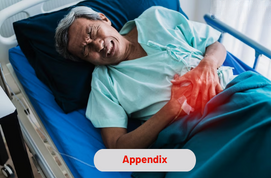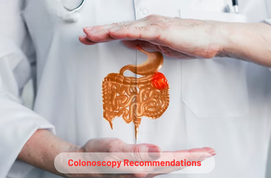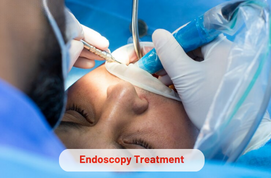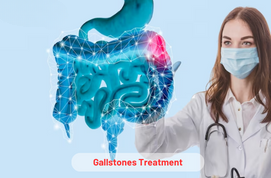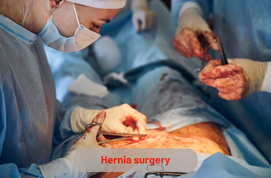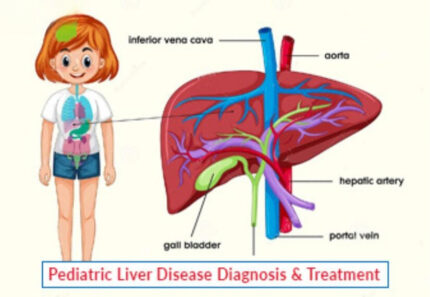Gastroenterology
Showing all 9 results
Gastroenterology is a dedicated medicinal branch mainly focused on diagnosing, treating and managing the disorder associated with the digestive system. As we know the digestive system is a significant function of the body and its prime work is to digest food and provide nutrients to the body. Hence, its proper working and management is essential for well-being. Therefore, management of pancreas, livers, stomach, esophagus, gallbladder, intestines and rectum are equally important because these all organs are linked with the digestive health.
Furthermore, gastroenterology also involves providing multiple treatment plans to the patients who are suffering with gastrointestinal health concerns.These concerns include acid reflux, ulcers, irritable bowel syndrome, inflammatory bowel disease, liver concerns, colorectal cancer etc. Each condition can leave an unhealthy impact on an individual’s life and overall well-being if not treated on time. Therefore, gastroenterology plays a crucial role in managing digestive system associated health conditions. Here listed some conditions commonly treated by the gastroenterologist:
- Hepatitis A, B, and C
- Gallstones
- Colon Polyps
- Fatty Liver Disease
- Colorectal Cancer
- Acid Reflux
- Irritable Bowel Syndrome
- Peptic Ulcers
If you’re suffering from any of these conditions and require specialized treatments, we offer a combination of world-class medical expertise and cost-effectiveness without compromising the quality of the treatment.
Why Choose Us For Gastroenterology Treatment?
We provide gastroenterology treatment with internationally accredited hospitals, highly trained doctors, and highly advanced infrastructure. Therefore, we are ready to attend to International patients.
- Renowned Gastroenterologists: We have many well qualified internationally trained gastroenterologists who have gained years of experience in both surgical and non-surgical treatments.
- World-Class Medical Facilities: Our partner hospitals are equipped with advanced infrastructure, including endoscopy units, laparoscopic surgery suites and high-tech diagnostic tools. Many hospital branches are NABH and JCI accredited, which promises to deliver global standards treatment.
- Affordable Treatments: One of the key benefits of selecting us for seeking treatment is the affordability. You can save up to 60% to 70%, which they can use for other purposes. Gastroenterology procedure costs are lower in asian countries as compared to big countries like the U.S., UK, and Europe.
- Minimal Waiting Period: In most developed medical tourism hubs, patients need to wait for weeks and even months whether it is surgical treatment or non-surgical treatment. Unlike other countries, we offer fast appointments for consultation.
- Holistic Care: Our partner hospitals are combined with holistic care along with modern medicine. Holistic care includes Ayurveda practices, physiotherapy, and dietary practices to ensure effective gastrointestinal healing.
- Personalized Support: Our dedicated team supports you at every step from consultation to post-surgery. We also provide language support that makes you comfortable in your medical journey.
Best Gastroenterology Procedure For Medical Tourists
Here are some best gastroenterology treatments for medical tourists:
Endoscopy Treatment
Endoscopy is a diagnostic procedure that allows doctors to identify the inner abnormalities of a patient. The procedure involves uses of certain medical equipment like a flexible tube, computer system and electricity connection. It is a minimally invasive procedure which allows surgeons to visually inspect parts like the esophagus, stomach, intestines with the help of a tiny camera.
Endoscopy procedures also assist in detecting concerns like ulcers, inflammation and abnormal conditions etc. Furthermore, endoscopy procedure is performed when a person is experiencing symptoms like persistent nausea, acute abdominal pain and difficulty while swallowing. Lastly, the procedure is admired for its precision, quick recovery and addressing multiple conditions without the need for surgery.
Gallstones Treatment
Gallstones are kind of stones which occur in gallbladder due to bile pigment. If a person is experiencing indigestion, abdominal pain, chills,nausea and vomiting then it might be because of gallstones occurrence. This requires immediate treatment if not treated on time it can cause adverse effects on health and life.
Its common treatments include medications and surgery. If gallstones are not causing symptoms, they may not require immediate intervention. However, gallstones removal is essential whether through surgery or certain medications. Although gallstone treatment varies according to the size, symptoms and acuteness of the stones.
Appendix Treatment
This treatment involves surgical removal of an infectious appendix. As we know, the appendix is an important part of the body and its main function is to fight against infection, however when this gets infected it needs to be removed from the body so it could cause adverse effects. Appendix removal procedure is usually called an appendectomy and there are two types of it open appendectomy and laparoscopic appendectomy. The surgery is performed and antibiotics may be administered to the patient for managing inflammation.
Polypectomy Surgery Treatment
When polyps occur in the inner lining of any organ including stomach, gallbladder and intestine it requires immediate treatment. Polyps are abnormal tissues or body cavities which develop in the hollow space of the particular organ and cause various symptoms including severe pain, infertility, difficulty while masturbation, irritable bowel movement etc. Hence, specialists recommend surgery treatment to remove polyps.
The polypectomy is a minimally invasive procedure which involves removal of abnormal tissues using different medical techniques. It is usually performed under the supervision of a specialized surgeon.
Pediatric Liver Disease Treatment
Pediatric liver disease treatment is associated with a child’s specific condition and severity. Its common treatments are medications, therapies, surgical interventions, lifestyle changes and liver transplant. However, each treatment method depends on the acuteness of the condition. Doctors suggest treatment after analyzing the overall condition of the patients.
For conditions like biliary atresia or serious liver condition, surgical interventions such as a Kasai procedure or liver transplant may be needed. Regular monitoring by a pediatric hepatologist is also essential for effective management. Early diagnosis and comprehensive care significantly improve outcomes, ensuring better quality of life for children with liver diseases. Collaboration with a multidisciplinary team is often vital for success.
Cost of Gastroenterology Treatments
At HealthCheckbox, we offer affordable gastroenterology treatments at world-class facilities. Hera is a small comparison of treatment costs for common gastrointestinal procedures in different countries:
| Treatment | India | United States | United Kingdom | Turkey | Thailand |
| Upper Endoscopy (EGD) | $450 – $1,000 | $2,000 – $4,500 | $1,500 – $3,500 | $500 – $1,200 | $600 – $1,200 |
| Colonoscopy | $500 – $1,200 | $2,500 – $5,000 | $1,800 – $4,000 | $600 – $1,500 | $700 – $1,500 |
| GERD Treatment (Endoscopic) | $600 – $1,500 | $3,000 – $7,000 | $2,500 – $5,500 | $800 – $2,000 | $900 – $2,000 |
| IBD (Crohn’s, Colitis) Care | $2,500 – $6,000 | $10,000 – $30,000 | $8,000 – $20,000 | $3,000 – $7,000 | $3,000 – $7,000 |
| Liver Disease Treatment | $2,000 – $5,000 | $8,000 – $20,000 | $6,000 – $15,000 | $2,500 – $7,000 | $2,500 – $6,500 |
| Gallbladder Surgery (Laparoscopic) | $2,500 – $6,000 | $8,000 – $15,000 | $6,000 – $12,000 | $2,000 – $5,000 | $3,000 – $6,500 |

